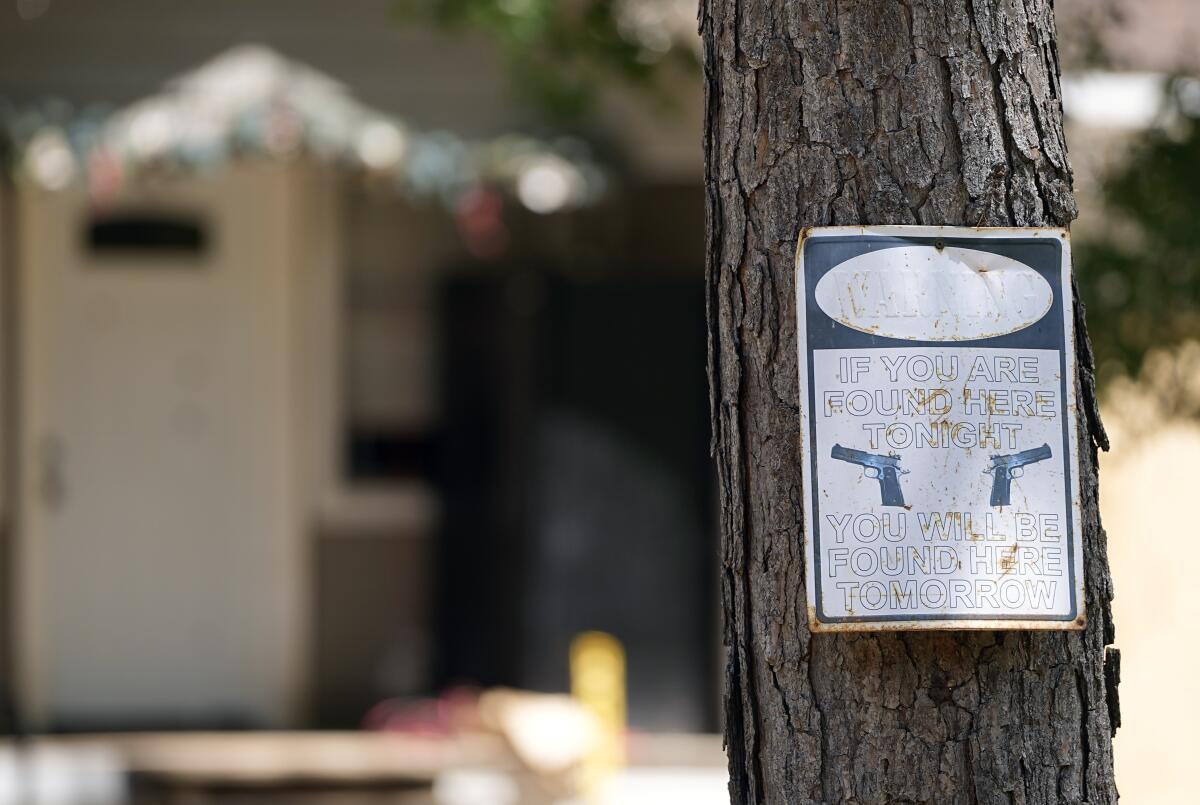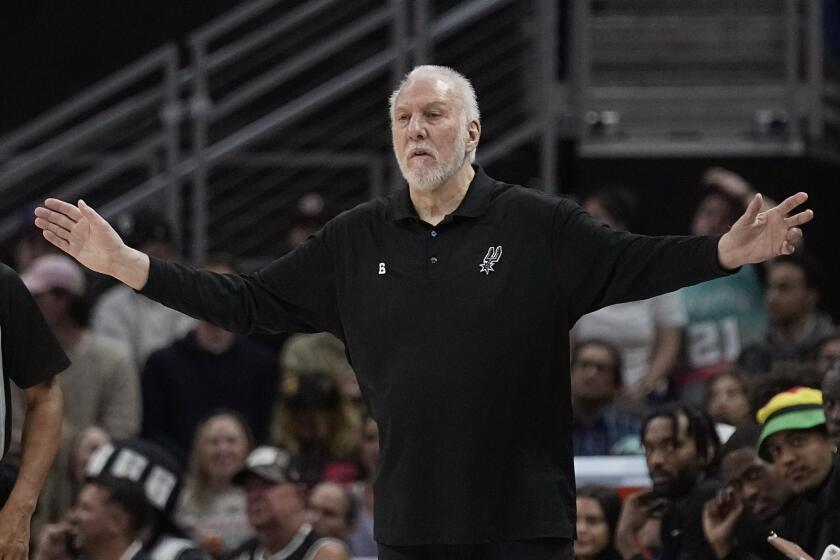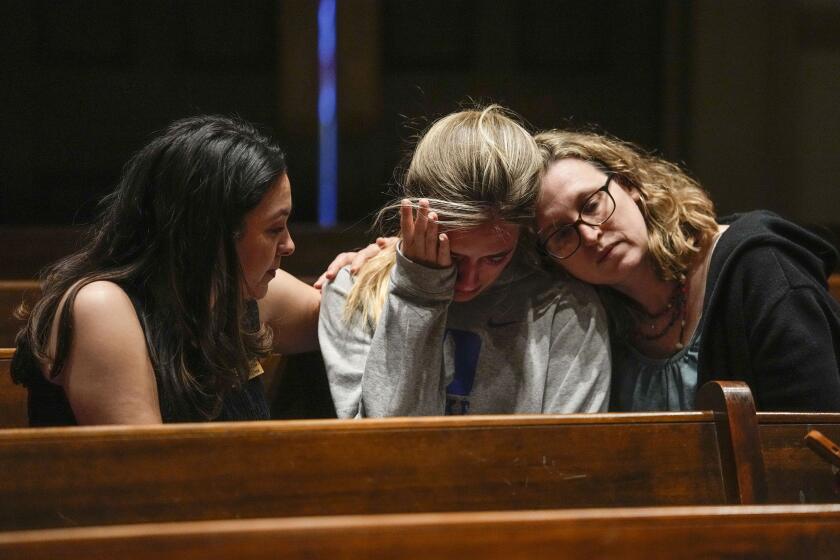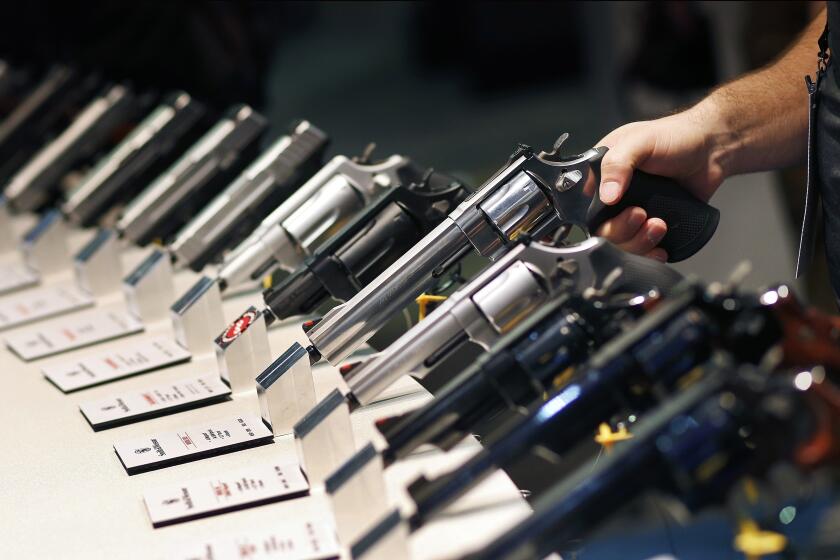Column: After a family in Texas is massacred, the language of gun violence fails us

On Sunday, police in Texas say, a 38-year-old man in a Houston suburb gunned down a neighboring family. He had been firing shots in his yard, and they asked him to move farther from their home because their baby was asleep. Gone are Sonia Argentina Guzman, Diana Velázquez Alvarado, Julisa Molina Rivera, José Jonathan Cásarez and Daniel Enrique Laso-Guzman, who turned 9 in January.
Opinion Columnist
LZ Granderson
LZ Granderson writes about culture, politics, sports and navigating life in America.
This pushes us to more than 180 mass shootings in the U.S. this year. There have also been about 6,000 gun homicides so far.
Gun violence has become such a normal part of American life that we have different terms to describe the various forms the way ancient Greece had multiple words for love or Eskimos for snow. Our shootings? We have: mass, police, drive-by, school, workplace and on and on.
Around 90% of Americans support universal background checks for gun purchases. So why won’t GOP lawmakers let it happen?
To enter the vernacular, a term must describe something that is both widely known and frequently encountered. In 2023 America, the search is on for a word to describe “shot for ringing the wrong doorbell.”
Author Rita Mae Brown has said: “Language is the road map of a culture. It tells you where its people come from and where they are going.” So what does our morbid gun violence taxonomy say about where we are going?
Or with near-constant shootings, have we already arrived?
Sadly after moments like Sunday’s shooting in Texas, our language has gravitated more toward nonsense than nuance.
To grow up counting victims of gun violence is not “freedom.” When will we decide that this isn’t how we want to live?
Elected officials speak of “senseless violence,” as if the senseless kind were the outlier. In fact it is “sensible violence” that has been proved to be the rarity. Gun advocates push the phrase “good guy with a gun,” even though civilians end mass shootings fewer than 3% of the time.
Many will talk about “gun restriction,” either for or against it, but what can that possibly mean in a land where guns outnumber people?
Leaders send out their “thoughts and prayers.” Once a sign of compassion, now a phrase that shows the speaker is putting in no thought at all, just reflexively using religion as a cover for inaction.
A deflection like “now is not the time” pretends to honor victims but ultimately just makes more of them. Mass shootings are so common in our country that under this pretense of respect for the recently killed, it is usually “not the time” to talk about gun violence.
After kidnappings of Americans, Mexico faulted the U.S. for ignoring the “serious problem of social decay.” But U.S. lawmakers would rather talk about invading.
Hearing how we talk about mass shootings today, you would think this reality had been imposed on us like weather, not chosen repeatedly at the polls. But Americans have continued to elect candidates who bow to the National Rifle Assn. and enthusiastically misconstrue the 2nd Amendment.
Candidates like Texas Gov. Greg Abbott. The day after that shooting, he wasn’t calling for tighter gun laws. He was calling the slain family “illegal immigrants.” His attempt to change the subject failed. Because even though Americans have put his ilk in office too many times, we’ve also seen far too many innocent people die in a hail of bullets — and we’re sick of the bloodshed.
When San Jacinto County Sheriff Greg Capers spoke about the boy who was killed Sunday, he got emotional.
“I don’t care if he was here legally. I don’t care if he was here illegally. He was in my county,” he said. “Five people died in my county, and that is where my heart is — in my county, protecting my people to the best of our ability.”
Capers’ words hark back to a time when the nation mourned the victims of mass shootings for an interval before turning them into political fodder. Back when such headlines were unusual. Shocking.
It feels as though even our extensive American vocabulary for gun violence can’t keep up with 2023. Some are school. Some workplace. One in a dance studio in Monterey Park. Different circumstances and yet painfully familiar, hence our dark and twisted vocabulary.
Capers’ words are a reminder that cold classification and callow deflection are not the only possible responses. The more that leaders and voters can hold to that kind of compassion, the greater the chance that recent bloodshed will bring a familiar word back into our national vocabulary for gun violence: “Enough!”
More to Read
A cure for the common opinion
Get thought-provoking perspectives with our weekly newsletter.
You may occasionally receive promotional content from the Los Angeles Times.















